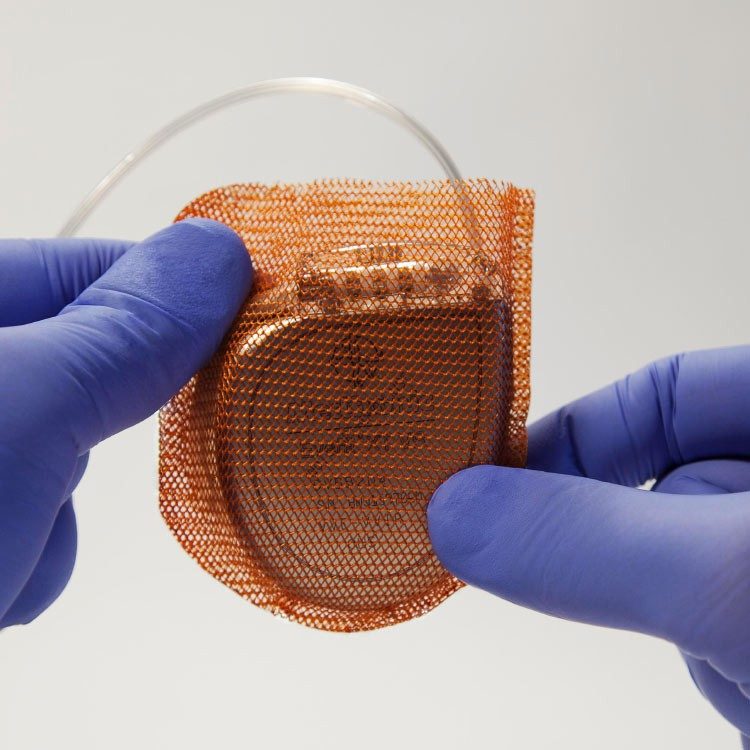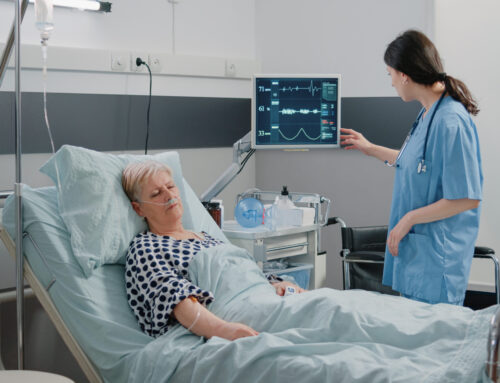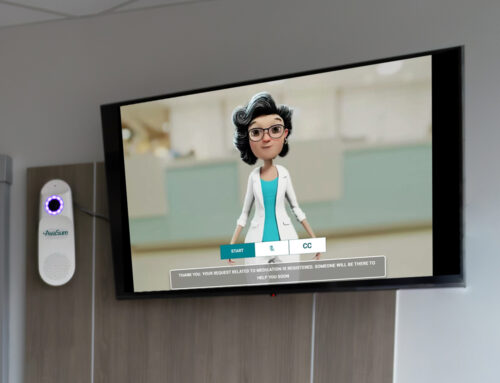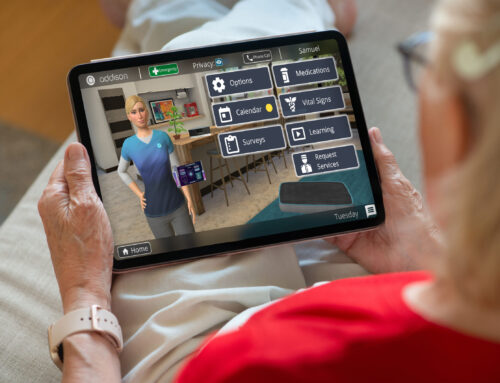
Photo of TYRX Absorbable Antibacterial Envelope courtesy of Medtronic
Medtronic plc, a provider of medical technology, announced new data from the landmark WRAP-IT study published in Heart Rhythm, demonstrating a significantly lower infection risk for patients who develop hematomas after cardiac implantable electronic devices (CIEDs) when the TYRX Absorbable Antibacterial Envelope (TYRX Envelope) is used at implant. The analysis showed an 82% reduction in major CIED infections among patients with the TYRX Envelope who developed hematomas compared to patients in the control group who developed hematomas.
An estimated 1.5 million patients worldwide receive a CIED every year,1 with 1% to 4% of these patients developing infections resulting in significant impacts on mortality, quality of life, healthcare utilization, and cost to global healthcare systems.3,4 Implant site hematoma, which is localized bleeding outside of the blood vessels, is a known complication of CIED procedures and can lead to device-related infections. Previous randomized controlled studies found a more than seven-fold risk of subsequent serious device-related infections in patients who develop a hematoma.5
The current WRAP-IT (Worldwide Randomized Antibiotic Envelope Infection Prevention Trial) analysis evaluated the incidence and consequences of hematomas and the association between TYRX Envelope use, hematomas, and major CIED infections among study patients (3,429 patients in control group; 3,371 patients in TYRX Envelope group). Patients with hematomas occurring within 30 days after the implant procedure were evaluated for subsequent infection risk. The incidence of hematomas was 2.2% (151 patients) and was similar among control and envelope patients.
The key findings, through 36 months of follow-up:
- In the control group, there was a greater than 11-fold increase in the risk of major infection among patients with hematoma vs. those without hematoma (13.1% vs. 1.6%; p<0.001).
- In envelope patients, the use of the TYRX Envelope reduced the risk of major infection among patients with hematoma: an 82% reduction in infection compared to control patients with hematoma (2.5% vs. 13.1%; p=0.03).
“Procedure-related hematomas are associated with serious consequences. This analysis sheds new light that these consequences can be significantly mitigated with the TYRX Envelope,” said Rob Kowal, M.D., PhD., chief medical officer of the Cardiac Rhythm Management business, which is part of the Cardiovascular Portfolio at Medtronic. “We look forward to additional data from WRAP-IT exploring the risk factors leading to procedure-related hematomas.”
Additional Data from WRAP-IT Highlights Patients at Risk for Hematoma at Heart Rhythm 2021
The WRAP-IT trial has produced more than 20 peer-reviewed manuscripts and abstracts to date, with robust clinical evidence supporting the use of the TYRX Envelope. During Heart Rhythm 2021, the Heart Rhythm Society’s annual scientific sessions, additional data from WRAP-IT will be unveiled: “Antithrombotic Use and Risk of Hematoma During Cardiac Device Procedures: Insights from the WRAP-IT Trial” will be presented from 1:30-1:40 p.m. ET July 28 (Abstract: B-PO01-038).
About the TYRX™ Absorbable Antibacterial Envelope
The TYRX Envelope is an absorbable, single-use device that holds a cardiac implantable electronic device or implanted neurostimulator. It is designed to stabilize the device after implantation while releasing antibacterial agents, minocycline and rifampin, over a minimum of seven days.6 Constructed from a multifilament, knitted absorbable mesh, the envelope is fully absorbed by the body approximately nine weeks after implantation.6,7
About the WRAP-IT Clinical Trial
WRAP-IT compared the incidence of major infections in patients whose CIED implantation included the TYRX Envelope (3,495) and patients whose procedure did not (3,488), with follow up through 12 months. Primary results published in The New England Journal of Medicine demonstrated the TYRX Envelope reduced the risk of major infections by 40% in patients with CIEDs and reduced pocket infections by 61% when used as adjunctive therapy in addition to standard of care infection-prevention strategies.8 The trial also met its safety objective: the envelope did not increase the risk of complications through 12 months. Economic analyses have demonstrated the envelope’s cost-effectiveness compared to standard-of-care infection prevention strategies in U.S.9 and European4 healthcare systems.
The study population included patients receiving a new cardiac resynchronization therapy defibrillator (CRT-D); and patients receiving a replacement, system revision or generator upgrade of an existing pacemaker, cardiac resynchronization therapy-pacemaker (CRT-P), implantable cardioverter defibrillator (ICD) or CRT-D. Patients with diabetes, previous history of infection, renal failure, and/or congestive heart failure also are at higher risk for CIED infections.
Based on the WRAP IT results, an international consensus statement, supported by seven medical societies (including the Heart Rhythm Society), recommends the TYRX Envelope for the WRAP IT study population and for patients with high risk factors.10
Cleveland Clinic named the Medtronic TYRX Envelope one of the Top 10 Medical Innovations for 2020,11 and the TYRX Envelope also was named a Fast Company World Changing Ideas finalist in the Health category in 2021.12
In collaboration with leading clinicians, researchers and scientists worldwide, Medtronic offers the broadest range of innovative medical technology for the interventional and surgical treatment of cardiovascular disease and cardiac arrhythmias. The company strives to offer products and services of the highest quality that deliver clinical and economic value to healthcare consumers and providers around the world.
About Medtronic
Medtronic plc (www.medtronic.com), headquartered in Dublin, Ireland, is among the world’s largest medical technology, services and solutions companies – alleviating pain, restoring health and extending life for people around the world. Medtronic employs more than 90,000 people worldwide, serving physicians, hospitals and patients in more than 150 countries. The company is focused on collaborating with stakeholders around the world to take healthcare Further, Together.












